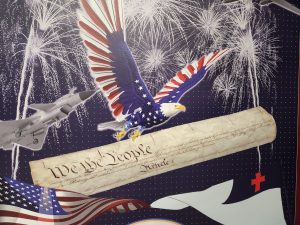The Other January 6th
Here’s a quick quiz.
When you think of December 25th, what comes to mind? No doubt Christmas is the answer.
How about February 14? St. Valentine’s Day, of course.
When you think of July 4th, the birthday of America comes to mind.
But what do you think of in reference to January 6th? What comes to mind? Well, ever since 2021 in the United States, the answer for some Americans is “the insurrection.” Joe Biden said of January 6th (on January 5, 2024), “it was on that day that we nearly lost America — lost it all.”
But others, like Gary Bauer, argue, “no one has been charged with insurrection because there was no insurrection attempted or completed” on January 6th.
But what if I told you that January 6th as a day on our calendar has a much more profound meaning—one that has endured for at least a millennium and a half and will endure for centuries to come, if Jesus tarries in His return?
There are three major branches of Christianity in the world. In the West, there is the Roman Catholic Church and the various Protestant churches. In the East, the predominant Church is the Orthodox. This has various groups associated with it. The Greek Orthodox, the Russian Orthodox, the Coptic Christians in Egypt, and so on.
Numerically, the Orthodox are a smaller group than Catholics and Protestants, but we’re still talking tens of millions of adherents.
In the West, Christians celebrate December 25th as the birthday of Jesus. Although many dispute that day as the actual birthday of Jesus, a case can be made for that as being authentic.
In the East, January 6th is known as Three Kings Day and also Epiphany. Historian Bill Federer observes, “’Epiphany’ is a Greek word meaning ‘appearance’ or ‘manifestation,’ celebrating Christ’s ‘manifestation’ to the world, as foretold in Isaiah 49:6: ‘I will also give thee for a light to the Gentiles, that thou mayest be my salvation unto the end of the earth.’”
It is celebrated as the day the Wise Men (the Magi) from the East came to worship Jesus and bestow him with gifts fit for a king—gold, frankincense, and myrrh. It is from the Magi’s gifts that we draw the tradition of gift-giving to mark the birth of Jesus.
January 6th is celebrated each year. The celebration date does not change dates from year to year, unlike Easter. The West and East differ a bit on when they celebrate Easter as well. It took me a long time to realize how we calculate it. Easter in the West is the first Sunday after the first full moon after the Spring equinox, March 21. So Easter can never be before March 21.
Meanwhile, in the early centuries of the Christian movement, where the Western churches celebrated Christmas on December 25th and the Eastern Christians on January 6th, there was a question as to whether they could somehow agree to celebrate the birth of Christ on one and the same day.
In 567, the Council of Tours attempted to reconcile the celebrations. No agreement was made, but they did come up with a compromise of 12 holy days, starting with Christmas and continuing through Epiphany—otherwise known as the Twelve Days of Christmas.
Christianity.com says of the Council of Tours that it “proclaimed the twelve days from Christmas to Epiphany as a sacred and festive season, and established the duty of Advent fasting in preparation for the feast.”
Some even argue that the famous song of the “Twelve Days of Christmas” was a coded way of communicating a Christian message when such messages were forbidden.
Author Bill Federer writes that according to this perspective, “my true love” refers to God, who gives us many gifts, each gift representing some aspect of the Christian faith.
According to this theory,
- The partridge in a pear tree refers to Christ crucified.
- The two turtle doves allude to the Old and the New Testaments.
- The three French hens are “Faith, Hope, and Love.”
- The four calling birds refer to the four Gospels, Matthew, Mark, Luke, and John.
- The five Golden Rings allude to the Pentateuch, the first five books of the Bible.
And so on. Some dispute this theory.
Meanwhile, it doesn’t matter exactly when we celebrate Christmas. What does matter is the recognition of the amazing story of Jesus Christ, who changed everything—even the calendar itself (B.C. and A.D., Anno Domini, in the year of Our Lord).
By living a perfect life and offering Himself as a sacrifice for our sins and sealing the deal by rising from the dead, He has transformed lives throughout the ages. He still does this.
Love Him or hate Him, Jesus Christ is the central figure of all human history. This is why I say the real January 6th needs to be reclaimed on the calendar once again.
###
Dr. Jerry Newcombe is the executive director of Providence Forum, a division of D. James Kennedy Ministries, where Jerry also serves as senior producer and an on-air contributor. He has written/co-written 33 books, including (with D. James Kennedy), What If Jesus Had Never Been Born? and (with Dr. Peter Lillback), George Washington’s Sacred Fire.




